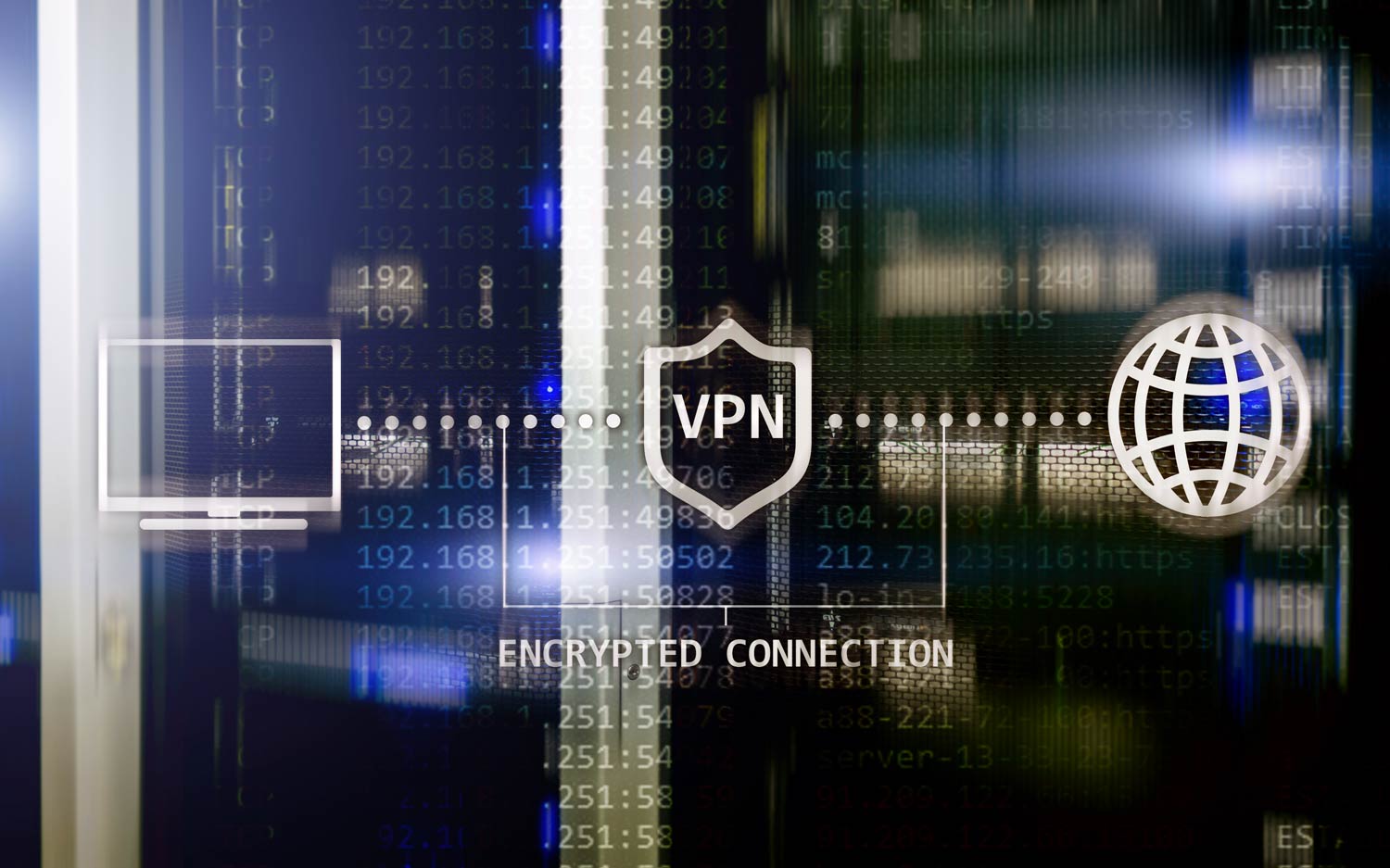A virtual private network (VPN) is an essential piece of your cybersecurity strategy. Using a VPN allows you to securely connect to your business network from other locations such as your home office or even while on vacation. Keeping your business data secure requires more than just a firewall and anti-malware software.
What is a VPN?
A VPN encrypts data sent from your computer to the internet. VPNs can mask your IP address which makes it more difficult for third parties to monitor your online activities. When you are connected to a VPN server, your computer appears to use the same connection as the VPN. Websites that monitor and tag browsing locations will tag the server’s geographical area, not your computer’s actual location.
A few common uses for VPNs
- Secure network access from a remote location
- Business often use to provide connectivity for staff to work from home or other locations
- Site-to-site connectivity
- Business use to provide virtual connectivity between multiple locations
- Masking a device’s geographical location
How do VPNs improve security?
Public (often listed on your device as guest) Wi-Fi networks that you might access in an airport, library or restaurant are not secure. If you must use a public Wi-Fi, be sure to do so through your VPN. When you connect that way, your VPN encrypts your data.
If you travel outside of the United States, your business’s network or U.S. websites may be geo-blocked. By connecting to a VPN server in the United States, you can access your network and those websites.
How do you choose the right VPN?
There are many features to consider when selecting a VPN.
Cost
There are free options for VPN services, but they may keep record of your activity or contain a lot of advertisements. Investing in a paid VPN services avoids those issues and typically have a list of available servers and configurations.
Location
The location of your VPN’s server is important. If you connect to a server far away, you may experience lags or slow browsing. Choosing a server more closely located will help ensure a smooth experience when browsing the internet. Connecting to a server in the same location as the content you want to access helps avoid geo-restrictions.
Capacity
It is important to understand the data limits of the VPN you select. The capacity (or data cap) should be stated in the terms of service from the VPN provider. The data allocation you choose will depend on the tasks you need to complete through the VPN.
In addition, the number of servers the provider has available is important. The more servers online, the less chance there is of not being able to access the internet easily and efficiently.
Functionality across platforms
Choosing a VPN that integrates easily with your favorite devices ensures consistent protection regardless if you are using a laptop, tablet or mobile phone to access the internet. Selecting a provider that offers dedicated apps or configuration for different types of devices provides the most flexible and consistent user experience.
Encryption protocols
Data security is an important topic and encryption protocols have been strengthened over time. The security of your VPN connection is determined by the strength and type of the encryption protocol being used by your provider. It is important to select a VPN service that utilizes the latest encryption protocols.
Customer support availability
You will want to select a VPN provider with readily available customer support options such as chat, email or phone. You should also read customer reviews regarding the quality of the support provided.
If you want to learn more about or need help choosing the right VPN for your business, reach out to expertIT today!

